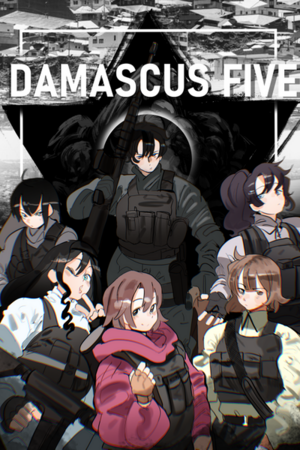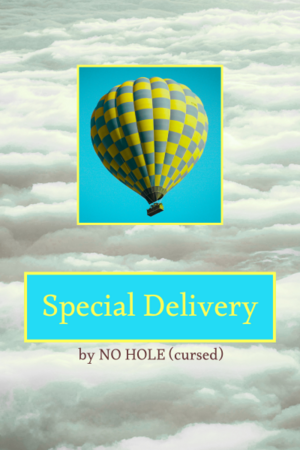Chapter 9:
Chapter 9 (Part A) (Taḷāka Prajñāpāramitā)
Antarabhava Jataka (Thus happened between Life and Death)
Taḷāka Prajñāpāramitā (The perfection of wisdom from the lake)
Thus has he heard,
On one occasion, while Max was on his stay at the Vulture’s beak, spending a long terrible night, he could sleep not a bit. A small, serene, angelic voice interrupted his unpleasant stay. As he sensed it, he felt it and assumed it was a call and a relief from the night of misery. He walked to where the voice appeared, to the bank of the lake. The scenery left him in awe.
The contaminated water filled with various wastes during the day had changed into pure water filled with five great kinds of lotus. Instead of the fetid odor, there were scents of flowers, grasses, and leaves. In the place of smelly blooming seaweeds, there came water hyacinths and lily pads. Small trees, grasses, and shrubs had grown in the earthy fertile land. Along with the greenery, there was a host of critters, owls, frogs, and fireflies. Deep in Max’s soul, calmness had taken over.
A boy was sitting on the bank. Max recognized him as the middle brother of Lucy. Sitting on a boulder on the shore, his left leg tucked inwards, and the right leg was dangling on the water. Holding a lotus, he produced a soft wordless hymn from his throat. His tone was deep, steady, and peaceful. Max couldn’t stay standing but follow. Even the critters began rhyming with the hymn.
From Max’s observation, the boy looked graceful. He was not very masculine, not feminine either, not in-between. He looked as gracious as he was.
Curious Max approached him and muttered, “Aren’t you a brother of Lucy?”
The boy didn’t respond to Max’s question but opened his mouth and said,
“How can you keep the water in a lake steady,” His voice was as sweet as a hundred melodies. Due to his asking, Max thought a bit,
“Perhaps, when the water is frozen, or when it is dead water, it is possible,”
The boy responded with a smile, “But I want it fresh with fishes, lotuses, and lily pads, not a dead or frozen lake,” Max was frustrated,
“Can’t say. By the way, what is your name?”
He tried to change the question's direction. In a semi-serious voice, the boy responded,
“Is the name important or the person?”
“Person, person is important,”
“And so it is. Answer my question. How can you make the water in a fresh lake steady?”
Oh, there it went again. Max was irritated
“Catch all the fishes, and remove all the water. But how could it still be a fresh lake you’ve said?”
“How do you define a fresh lake?”
“It has clear water, lily pads, and fishes. Like the one before us,” Max pointed at the lake.
“Now, remember this. The lake is not steady. It is never in a steady phase. So, how could you say that the lake of this moment will exist in another moment? Should you truly call that it ‘exists’”
“No, but the lake is still in front of me. Even if it is changing and not existing the same in every moment, it is still the lake,”
“True. So, can you say this lake will exist for all time? No. Since it is changing, it is not really ‘the lake,’ Can a fresh lake also exist without changing?”
“No, a fresh lake can become frozen or dead in the future since the water, fishes, and lily pads are always changing,”
“Without the ever-changing water, fishes, and lily pads, will it still be a fresh lake?”
Max was deep in his thoughts for a while and answered, “No”
“Indeed, Listen, O Child of glory, I will summarize. Since the fresh lake is always changing, you cannot say the lake you see truly exists. It is merely a play of constantly changing factors. You cannot assume that “the lake exists” or “I own the lake,”. In other words, the lake you see, feel, and own does not exist.
But then, without the constantly changing factors: water, fishes, lily pads, and lotuses, it could not be called “a lake,” either. Without the constant change, the thing you call ‘a lake’ does not exist.
Because of the change, it does not exist, and without the changing factor, its existence is meaningless. A fresh lake is composed of things that do not make ‘a lake’
In shortest words, a lake is called a lake because it is not truly really a lake,”
Max was left speechless by the deep philosophy he had encountered. Never had he heard something more serious in his life. Never had he thought deeper before. Not anyone called him "Child of Glory" before. Thus, he had witnessed the greatness within the boy. The boy continued,
“O child of glory, listen. Is the physical body in a constant change?”
“Indeed, my lord,”
“Because of the change, can we say that our bodies exist or we own the body?”
“No, my lord, we cannot say that,”
“Without the changing factors such as bones, flashes, and organs, can we still call it a body either?”
“No, my lord. We call it a body because it is made up of constantly changing things that make it not a body or not our own,” The boy was proud of Max’s understanding and continued.
“Now, you understand a bit. Let us move on. O child of glory, Are our mental parts such as feeling, perception, response, and consciousness in constant change?”
“Indeed, my Lord,”
“Because of the change, could we call these ‘feeling, perception, response, and consciousness ‘ as existing or our own?”
“I guess not, O Lord,”
“Without the change, can we still call them ‘feeling, perception, response, and consciousness’?”
“No, my lord. We call them ‘feeling, perception, response, and consciousness’ because they are made up of constantly changing things that make them not exist or not our own,”
At that point, Max had understood the boy’s philosophy. The boy knew that Max would be bored if he gave another example. So, he concluded it.
“To end, everything, including the physical body, feeling, perception, response, and consciousness are all empty in essence. They are named as things because they are made of things that make them not a thing. The true essence of everything is not being the same things as our perception,”
Max was touched by the Dharma and fond of it.
“O, Honoured one, what is the name of this teaching, and how should I remember it?”
And the honored boy spoke, The name of this dharma teaching, O Child of glory, is the Perfection of Wisdom from the lake “Taḷāka Prajñāpāramitā”. Thus should you remember it.
And so it was past, the boy continued, “Oh, Max, child of glory, during your journey, haven’t ye met with other children? Haven’t they helped you or gifted you?”
“Yes, they did,”
“I shall give you this,” The boy said while putting a spinning top toy on Max’s palm. “Tell me what you see,”
Max observed it in detail. On the surface of the toy, there were dots and scratches. They conveyed no meaning.
“Just some scratches,” Max replied
“Then spin it,”
Max made the top spin on the ground. As it initiated spinning, the scratches on the top’s surface began forming an image. At the highest speed, it obtained the clearest image. The image of a ruby placed on top of a white lotus.
Max found the unique symbol beautiful and watched it carefully. As the spinning decreased, the image became blurry again. When it stopped, there were no images but random scratches on the surface.
“You will understand, now, sleep,”
Max smiled at the boy. With the enjoyment of his philosophy, he went back to sleep.
All this was spoken by the boy to the joy of Max, frogs, fireflies, owls, birds, fishes, critters, and mice that dwelt all of whom were greatly pleased with what the boy said.




Please sign in to leave a comment.